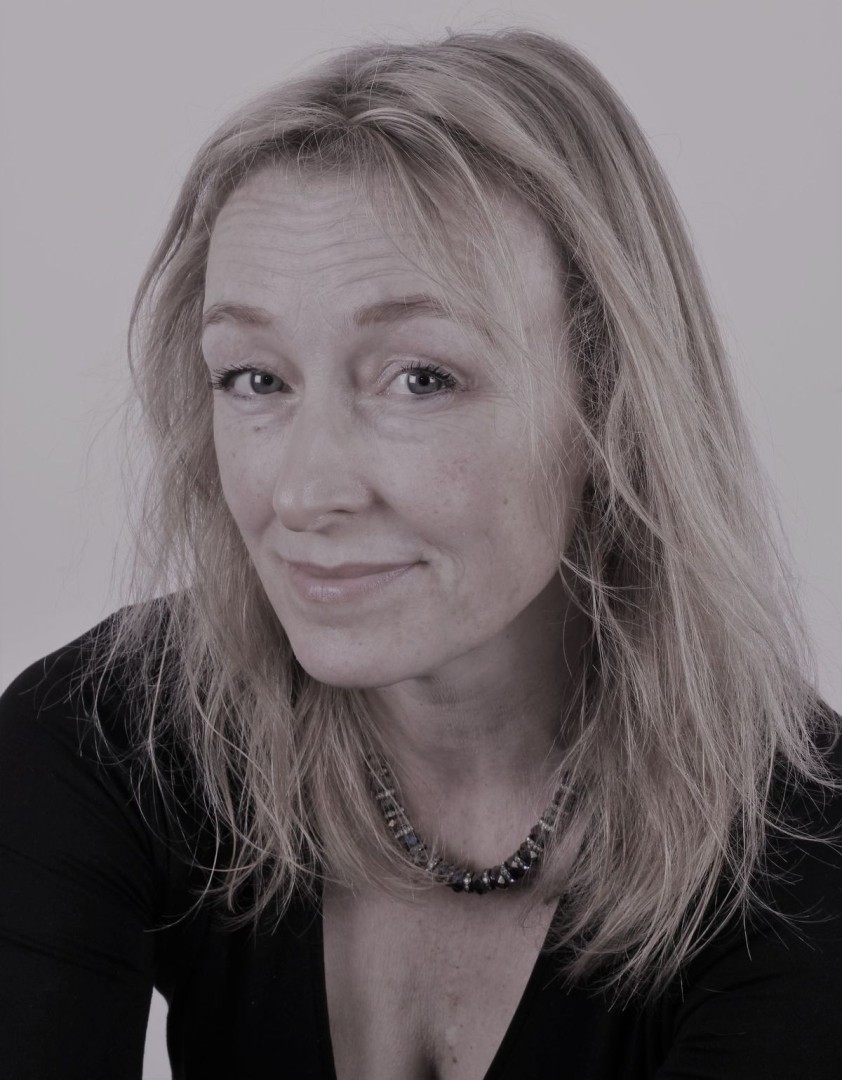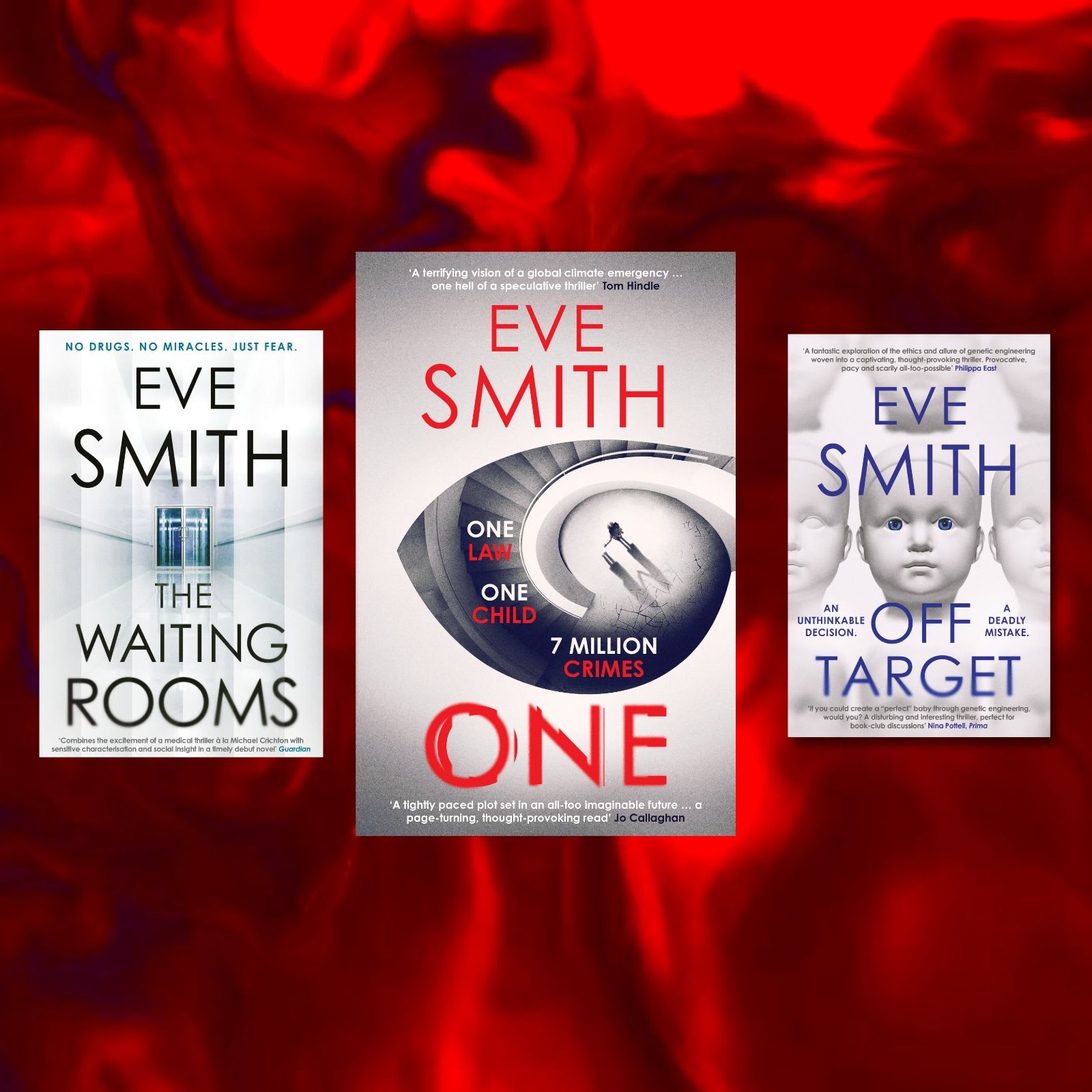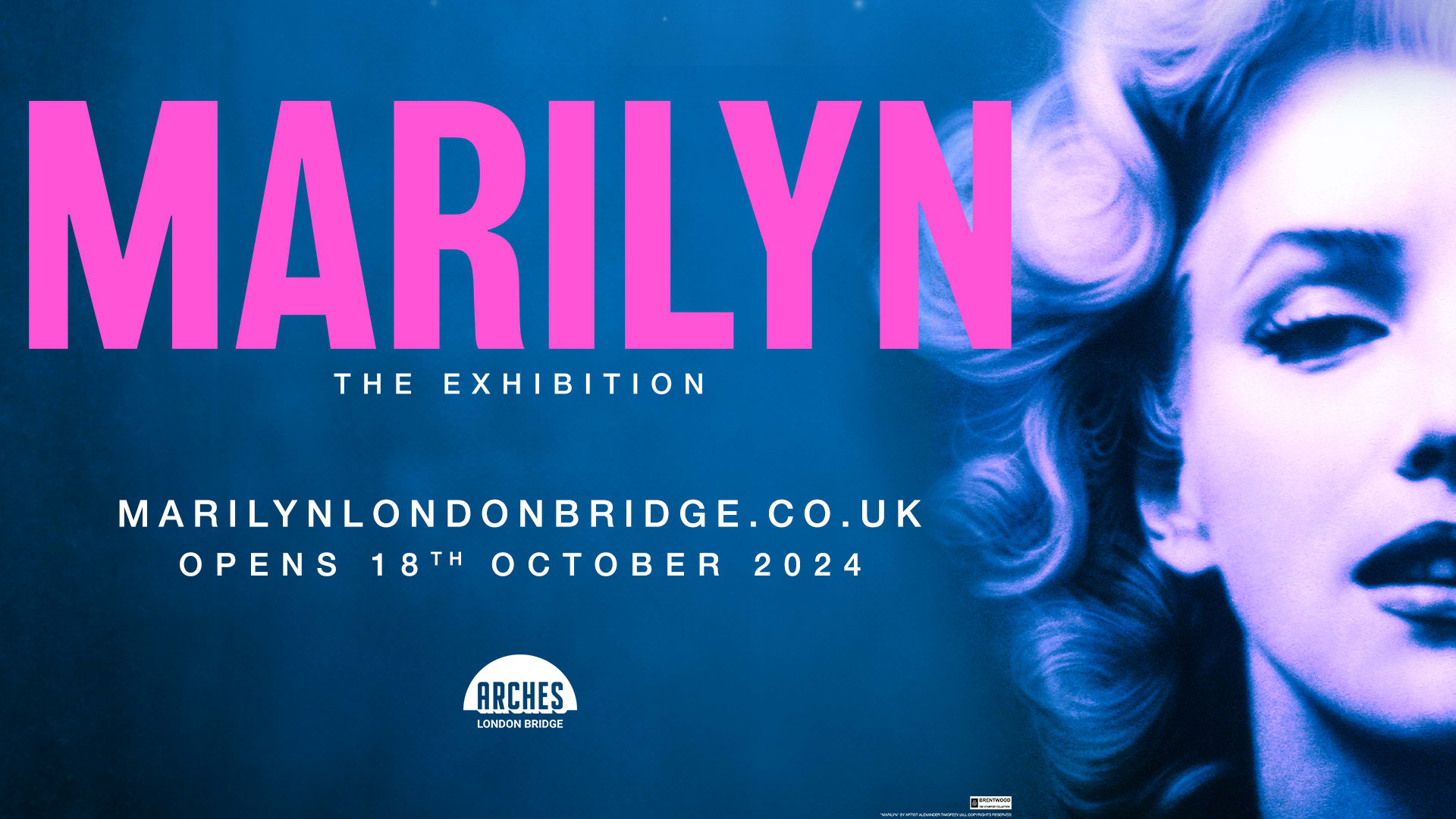Oxfordshire-based author Eve Smith describes her books as speculative thrillers, but they should come with a caveat: DO NOT READ AT BEDTIME.
I discovered this to my personal (sleepless) cost when I was gripped by her most recent novel, One: in a future Britain the government have enforced a one-child policy to combat the devastating impact of climate change and preserve precious resource. Protagonist, Kai, works in the Ministry of Population and Family Planning and it is her job to ensure that families do not exceed their quota. If they do, it’s up to Kai to oversee the termination of excess pregnancies and enforce the use of contraceptive implants. Then she discovers that her own parents had a second child; she has an illegal sibling. Eve Smith paints a chillingly plausible picture of what could be a future reality. Addictively readable and highly recommended, I was intrigued to know more about what motivates Eve to write in this genre.
It’s thought that readers love dystopian fiction as it is understood to be a way in which we can all make sense of a spiralling world. So I wondered, what motivates you to write it?
I agree with that statement because I tend to write about issues that interest me but also slightly terrify me. One of my ways of dealing with that is to find out everything I can and then try and distil it down into a story that hopefully will grip people and make them aware – but not in a preachy way. I think fiction has an important role to play because you can really humanise what are often quite complex conceptual themes. People think ‘oh that’s never going to happen to me’ but guess what it is. It could, it is coming.
Your books to date have covered adoption, single child policies, assisted pregnancies. Would it be accurate to group these as themes you are interested in exploring?
Yes, absolutely because I think you write about what scares you. As a mother, you have continual fears for your children. I am really interested in family dynamics and I also think families are a great way of really showing the impact of what can seem like great big far off issues.
In [my second book] Off Target it was all about showing the impact of taking the step of modifying embryos; not just on the parent but the child. Also, in that book, I explored a very big theme for many women around infertility. I really wanted to show the pain of that whole experience and show how much we are prepared to put ourselves through to be biological parents. I’m working on book four now, and absolutely there’s going to be a mother dynamic in that one as well.

It feels like science is accelerating at such a rate that our capacity to make moral judgements is struggling to catch up.
I totally agree and I think that’s one of the issues really. We've not had these discussions about what is and is not morally acceptable. We've not had it about AI, we've not had it around gene editing and all these other things that are racing along. The other day they said they have created a new life form from cells which are equivalent to an embryo. We’ve got to have discussions which are broader and beyond the science community. To be fair there is an effort to do that but most of the time most people haven’t got a clue that these things are going on in the background. Until all of a sudden they are possible.
But who are the they? Where are we looking to for guidance? Religious leaders? The Government? Where is the trustworthy source?
I think that’s one of the issues. So, some of the scientific community try to set up stakeholder groups. I think the UN does a good job; they have got various frameworks that they develop which is hugely consultative. The problem with that is that only applies to countries that volunteer to sign up to these things, and as we know Russia and China don't, and it’s getting increasingly difficult to contain what individuals choose to do when the tech is actually so accessible. There’s a load of people literally experimenting in their garages and no amount of regulations, unless its seriously policed, is going to stop that.
So, where is the line between humanity and human survival?
It’s going to be very interesting. I think the UN is predicting there’s going to be a billion environmental migrants over the next 30 years. At the moment we don’t seem to be able to find a balance between humanity and self-interest. Part of the issue is the whole democratic system. All parties care about is whether they’re going to get in at the next election, which is why it is very dangerous right now.
What are you working on next?
(laughing) That’s not going to cheer you up.
So, the next issue is age reversal technology. I don’t know if you've seen this stuff in the news? In clinical trials they've been able to make mice older and younger – the whole Benjamin Button thing. There’s a lot of money going into this, a large amount from Silicon Valley because, guess what? Those tech billionaires want to live forever and they are prepared to put their dollars where their mouth is. Don't get me wrong, I’m all in favour of us living older, better. That is brilliant. If there’s a way we can age better and healthier that’s great, but do we really want to double our lifespan?
Finally, on a less terrifying note, who are your favourite authors, and what are you currently reading?
It won’t come as a surprise that Margret Atwood is a bit of a heroine. I just love her. She takes stuff that has happened, or where the tech is in place so it could really happen, and I really like that. If you make it grounded and plausible – near future scenarios – you could imagine it happening and I think makes it much more terrifying. That’s kind of what I wanted to imitate a little bit.
I’ve just read Sister Hood by Katherine Bradley, a reimagining of George Orwell's 1984. It’s really good. Also, In Memory of Animals by Claire Fuller was beautiful, and then there’s a lovely author called Awais Khan and he tends to write books that are based around very real issues in Pakistani culture. He writes amazingly from a female perspective.
Eve Smith is the author of three books, The Waiting Room, Off Target and One. She regularly appears at talks and events across the county.
For news and updates, visit her website, evesmithauthor.com









